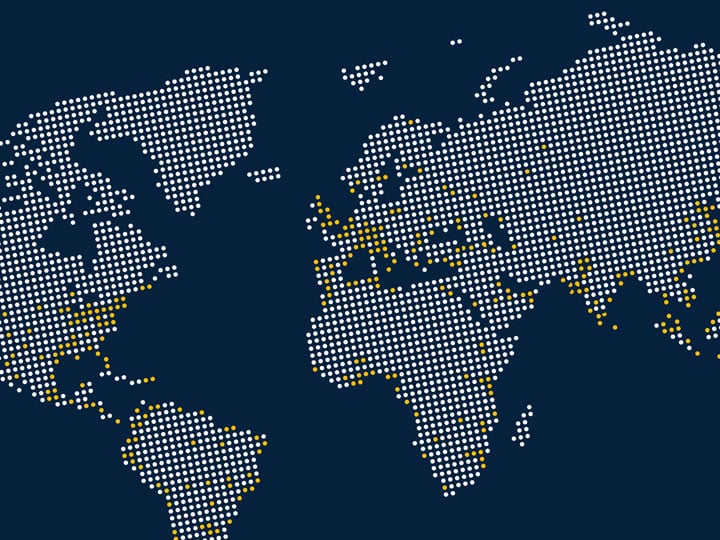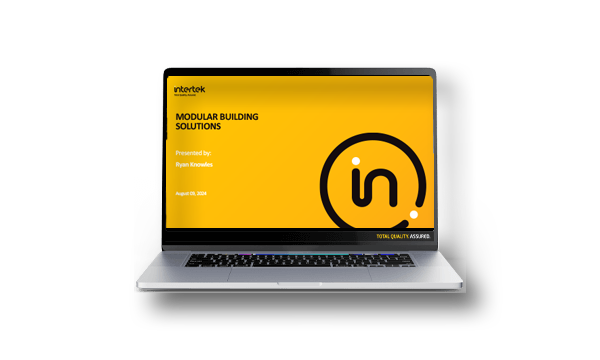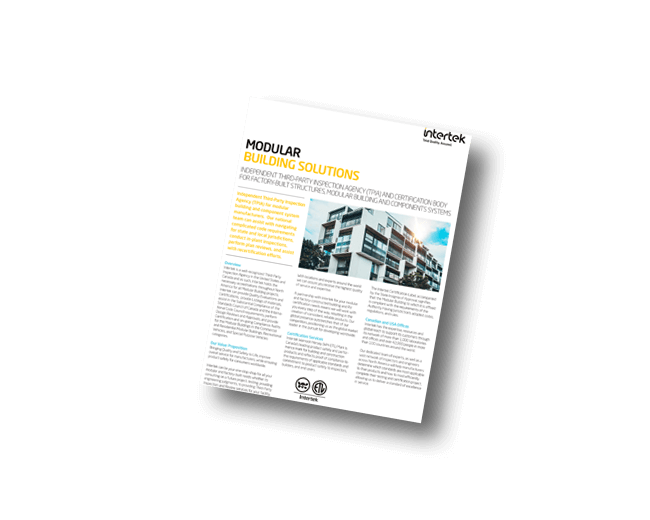Independent Registered Modular Third-Party Inspection Agency (TPIA) and Certification Body for Factory-Built Structures, Modular Building and Components Systems
Exploring Modular Construction
Modular construction is an increasingly popular building method that involves manufacturing building components in a factory-controlled environment and transporting them to the construction site for final assembly. This approach is widely used in commercial and residential projects because it offers significant advantages over traditional onsite construction, such as greater efficiency, faster build times, and enhanced quality control.
One of the key reasons for the rise in demand for modular construction is the ability to construct modules in parallel with site preparation, significantly reducing overall project timelines. The controlled factory environment also allows for more precise construction, minimizing defects and reducing delays caused by weather, which are common in onsite methods. Modular construction is also a more sustainable option, as it generates less waste and optimizes energy use.
Unlike manufactured buildings with a permanent chassis for relocation, modular buildings are constructed on permanent foundations, making them more durable and stable. This construction method is ideal for sectors such as healthcare, hospitality, education, and housing, where speed, cost-efficiency, and quality are increasingly prioritized.
Benefits of Modular Construction
Modular construction offers several clear benefits over traditional onsite methods:
- Faster Timelines: Modules are built simultaneously with site preparation, cutting project time by up to 50%.
- Improved Quality Control: The factory setting ensures consistent quality and reduces defects.
- Cost Efficiency: Lower onsite labor hours and reduced material waste lead to lower overall costs.
- Safety: Factory conditions provide safer working environments for construction teams.
- Flexibility: Modular designs are highly customizable to meet a range of project needs.
- Sustainability: Modular construction reduces waste and supports eco-friendly building practices.
Modular Building Compliance, Inspections, and Certification Services
Intertek plays a critical role in helping manufacturers meet the necessary codes and regulations for modular buildings in the U.S. and Canada. As a well-recognized registered Modular Third-Party Inspection Agency (TPIA), Intertek supports manufacturers through every phase of the modular construction process. This includes conducting plan reviews, performing factory and onsite inspections, certifying that the materials and components meet necessary standards, and issuing certification labels and state insignias to verify compliance with applicable building codes. As well as modular consulting for start-ups, existing manufactures, developers and general contractors to navigate the various rules and regulations of the state modular programs and building codes.
Intertek holds the necessary accreditations throughout North America for all modular building projects.
In the U.S., manufacturers must comply with state-specific regulations, which often require working with a registered Modular TPIA. Intertek is well-versed the codes and regulations for each state, guiding manufacturers through complex requirements to ensure compliance.
In Canada, modular buildings must adhere to the standards set by the Standards Council of Canada (SCC). Intertek assists manufacturers by conducting factory assessments, reviewing design documents, and performing compliance audits to ensure that all aspects of the project align with Canadian regulatory standards.
Modular Building Types Supported
Intertek provides modular certification services for a wide range of building types, including:
- Commercial Structures: Hotels, medical facilities, dormitories, and office buildings.
- Residential Buildings: Single-family homes, accessory dwelling units (ADUs), and manufactured homes.
- Recreational Vehicles: Tiny homes, park model trailers, and RVs.
- Industrial and Specialty Structures: Food trucks, relocatable structures, and modular restroom assemblies.
U.S. Certification Standards for Modular Building
In the U.S., Intertek provides certifications under:
- ANSI A119.5: Certification for Park Model Recreational Vehicles (PMRVs)
- State-Specific Rules: Compliance with individual state modular construction rules and regulations Intertek is registered in all states with modular programs.
Canadian Certification Standards for Modular Building
Intertek is accredited by the Standards Council of Canada (SCC) to certify modular buildings to the following standards:
- CSA A277: Procedure for Certification of Prefabricated Buildings, Modules, and Panels
- Alberta Building Code Part 10: Relocatable Industrial Accommodation
- CSA Z240 MH Series-16: Manufactured Homes
- CSA Z240 RV Series-14: Includes NFPA1192, Recreational Vehicles
- CAN/CSA Z241 Series-18: Park Model Trailers
- CAN/UL 2600: Standard for Relocatable Buildings
Intertek's Warnock Hersey (WH-ETL) mark, widely recognized in Canada, signifies that products meet the necessary safety and performance standards, providing confidence to builders, inspectors, and end users.
Global Reach and Expertise
With over 1,000 laboratories and offices worldwide, Intertek offers extensive resources to support modular building projects. Our expert inspectors and engineers work closely with manufacturers to ensure compliance with quality standards, providing support from project inception to final certification.
Knowledge Center
Building Health & Wellness: An Overview of Services
Acoustical Testing & Consulting Resources
Remote Pre Inspections for NFPA 80 / 101
Protek - Safety. Everywhere. Every Day
Fire Doors 101: Your Guide to Testing and Certification - Webinar Recording
Tornado Testing & Certification Requirements - Webinar Recording
Plumbing Products Testing & Certification - Webinar Recording
The Evolving Code Evaluation Process White Paper
Proposition 65 & the Furniture Industry Webinar Recording
Why Planning for FCC Certification is Key to Success in the Door Hardware Industry White Paper

Upcoming Tradeshows & Events
Resources
- Search and Buy Building & Construction Standards
- SpecDirect
- Building Products Directory
- Project Connect (formerly myATI) – B&C Products
- Construction Hive – B&C Projects (PSIQest)
- My TestCentral


